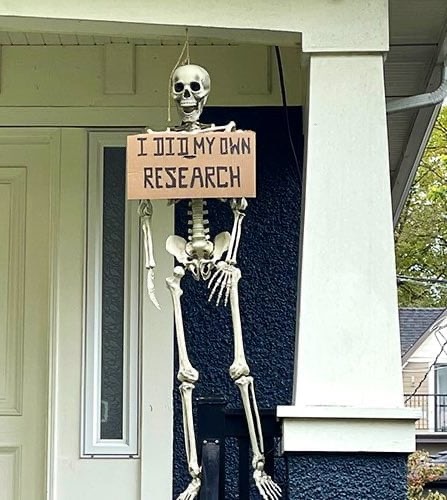You can thank us later.
Fond readers of TMR will know that all our political, clinical and professional GP news output is really just a vehicle for memes.
So The Back Page was delighted to find this study confirming what we’ve known all along: that viewing humorous media content about particular stressors “can benefit our emotional state and stress levels”.
While the effects of media consumption on coping have been studied, the researchers found a paucity of published work specifically related to social media memes (we’re shocked).
“The quick and rampant generation of meme content presented the possibility that this form of popular media could potentially buffer against the deleterious emotional side effects of consuming covid-related information and help individuals to cope with it,” the authors wrote.
They asked 750 participants about stress levels and then had them view various pieces of media including memes (treatment) and news headlines (control). Memes were pre-rated as cute/not cute, having animal or human content and being related or unrelated to covid.
They then measured the participants’ humour response, anxiety, positive emotions, information processing and coping efficacy.
The results, they wrote, “demonstrated that people who viewed memes with captions focused on covid-19 actually reported lower levels of covid-19-related stress than did those who saw a non-covid-19 caption.
“This finding is consistent with the idea that engaging memes can offer useful perspective, comfort, and validation for one’s own experience, all of which can be psychologically beneficial.”
They also found that covid-related captions on memes were positively associated with greater information processing than non-covid captions, and that information processing was positively associated with greater coping efficacy.
So, indirectly, our covid memes are helping you cope.
Good for memes!
With the caveats that “viewing just three memes may not be enough to lower stress around the covid-19 pandemic” – which is why we give you almost 20 each Friday, duh – and that cuteness was negatively associated with coping efficacy.
So “if public health messengers want to use memes as a brief intervention to improve coping abilities, they may want to stick with memes of adult humans”.
We hear you.
If you see a story that increases your coping efficacy, send to felicity@medicalrepublic.com.au; if you see memes, send to talia@medicalrepublic.com.au
* Memes are not the best medicine







